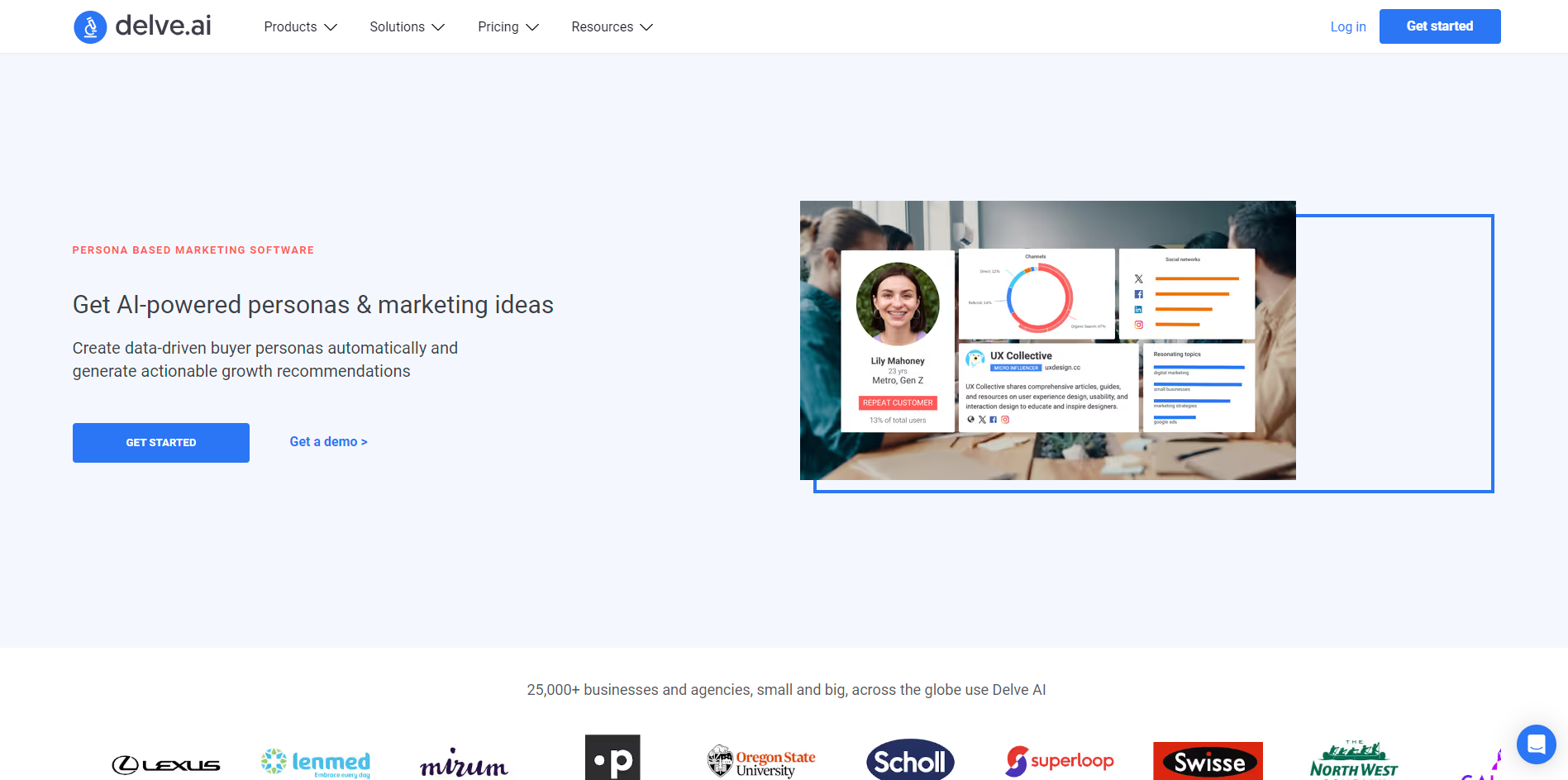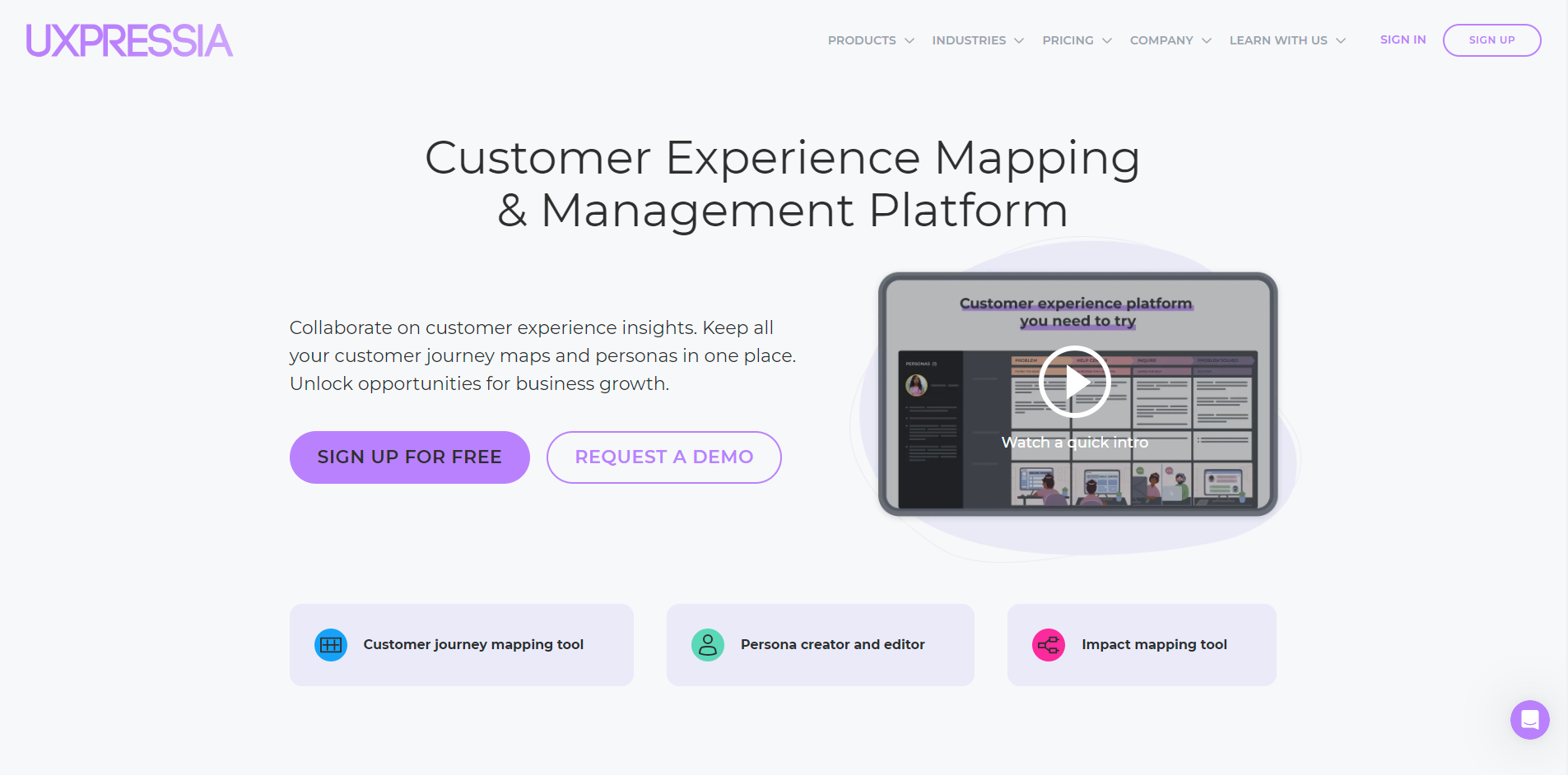Unique Brand
When you think of the most famous healthcare businesses out there, what comes to your mind? Brands like Mayo Clinic, Walgreens, or CVS are what they are because they’re stuck in their customers’ minds. Visual identity, location, and customer service are some factors that can make a practice successful.
When any potential patient remembers characteristics or elements associated with a particular practice, then we can say that we’re in the presence of a successful, unique brand.



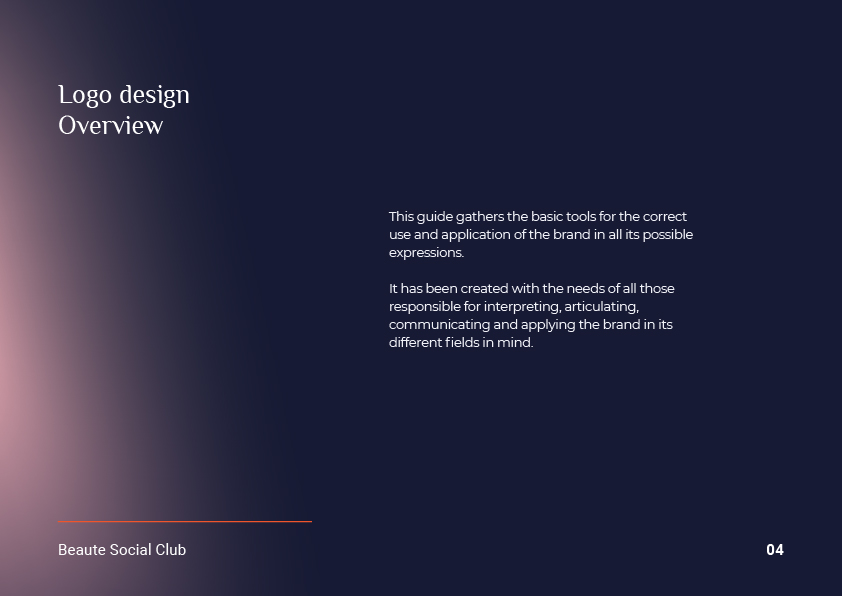


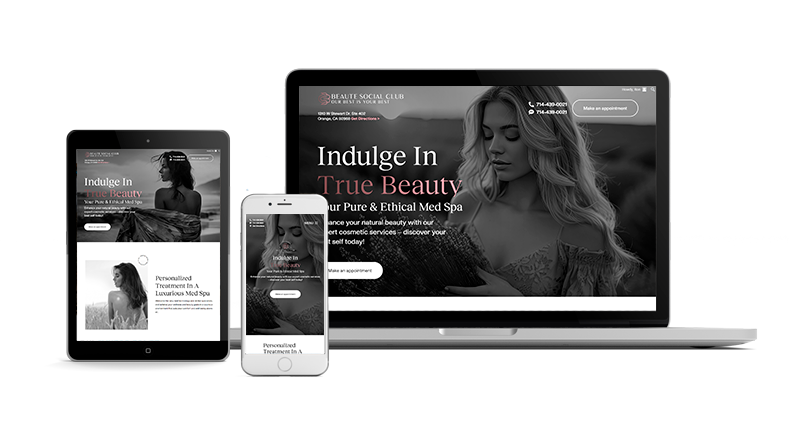
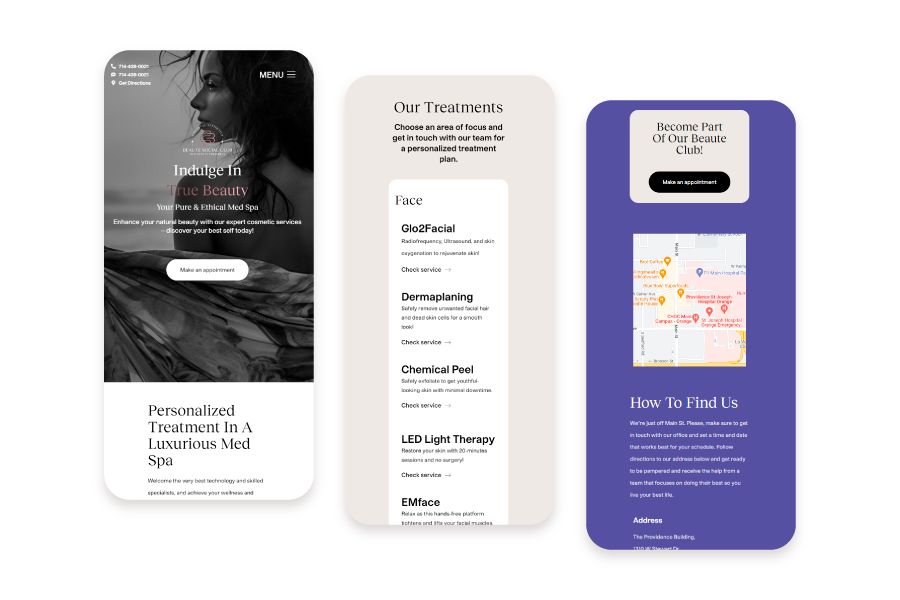
Developing a unique brand must be the final goal of any medical practice; it allows you to stand out from the competition. A unique brand can help communicate its value proposition (UVP) to prospective patients, which can help increase bookings and grow the business. A strong brand can also create patient loyalty, which leads to repeat appointments and referrals.
Several elements can make your practice different from the competition. Whether you have an already established practice or you’re in the process of starting one, marketing never stops and is constantly changing.
Marketing elements include basic brand elements, like the name, to more complex ones, like defining the market segment and establishing a price. Keep reading to discover what features will make your practice stand out.
Learn more about branding:
Products, Services, and Treatments
Healthcare professionals offer a wide range of products, services, and treatments that allow them to develop a unique brand. Healthcare businesses can be divided into:
A well-planned marketing strategy will ensure the success of any business and practice in the healthcare industry. Healthcare is a basic need, so it will always be necessary to stay updated with the latest innovations.
- Hospitals and clinics
- General and specialist doctors and nurses;
- Oral health professionals
- Dentists
- Orthodontists
- Periodontists
- Body and mind professionals
- Gym and sports center owners
- Fitness coaches
- Nutritionists
- Psychologists and therapists
- Alternative medicine professionals
- Acupuncturists
- Chiropractors
- Veterinarians and animal caretakers;
- Medical equipment and technology providers;
- Pharmaceuticals;
Price
Pricing is always a tricky topic. Earnings motivate any practice or healthcare professional, but setting a price and charging it can sometimes be a headache.
How do I determine costs? Is my product or service too cheap or too expensive? What if no one wants to pay for what I do?
Price is one of the pillars of marketing. A successful strategy can sell any product or service and enables potential patients to consider your practice for its qualities and benefits regardless of price. The goal is to sell without selling.
And when price does become a factor for clients, more pricing strategies come into play. You can show comparisons to competitors, average treatment costs, participation with in-network insurance providers, and payment plans. A big number is scary, but when you offer different payment possibilities, you’ll be one step closer to finishing that sale.
Learn more about pricing:
Place, Proximity, Location
Patients expect to interact with you and be treated in a comfortable, up-to-date space. Even if it doesn’t seem like it, where your practice is located and what is visible to customers is an essential marketing element.
All the equipment you own (and if it’s visible), location, comfort, and even decoration; each of these characteristics can make or break your potential patient’s first and most important impression.
When a potential customer visits your practice, remember that every aspect is a selling point. A good marketing strategy takes into consideration these elements and makes good use of pictures and videos to showcase everything you have to offer.
Strategic Marketing Plan
You’ve probably heard that it isn’t easy to have a business nowadays, and running a healthcare practice in a world where almost everything can be found online is not as simple as it sounds. Patients sometimes feel like they don’t need to go to a hospital or wellness center anymore since they can find the information with a few clicks.
Developing a strategic healthcare marketing plan will be the key to ensuring success for your practice.
A marketing strategy allows you to determine your practice’s general and specific goals and the actions to achieve them. You’ll understand your target market and competition and define your activities roadmap to increase your chances of marketing success.
A healthcare marketing plan is the best tool to help your practice to fulfill its objectives: improve patient inflow, grow your returning clients list, and increase your revenues. Keep reading to learn everything you need to know about each component of a marketing plan for healthcare.
Learn more about healthcare marketing:
Setting a Budget
Most healthcare practices set big budgets for operational expenses and very little for the marketing department. Defining a budget for healthcare or medical marketing is essential in determining if a plan is feasible.
A budget can be a headache for many people, especially for those who aren’t very familiar with business expenses. However, setting a budget is an essential step at the beginning of every project.
A budget will help you determine the following:
- How many actions your project will require by the end;
- Where the money will come from;
- What to do in case of an emergency;
- Whether your plans are achievable or not.
The most important step in creating a successful budget is to set realistic goals. Consider the size of your business, the target audience, and any existing marketing strategies you already have. Once you have a clear idea of what you would like to achieve, create a timeline for achieving your goals and allocate the necessary resources.
Learn more about budgeting:
Healthcare Marketing SEO Pricing
As we’re touching on the subject of budget-setting and considering what your strategy might cost, you might find it useful to get better acquainted with how much a Healthcare SEO strategy might cost and what it can include.
Please keep in mind that comprehensive SEO plan costs can vary a lot depending on your goals and digital requirements, but here are a few things you shouldn’t compromise on to make sure you’re getting the best results for what you’re paying:
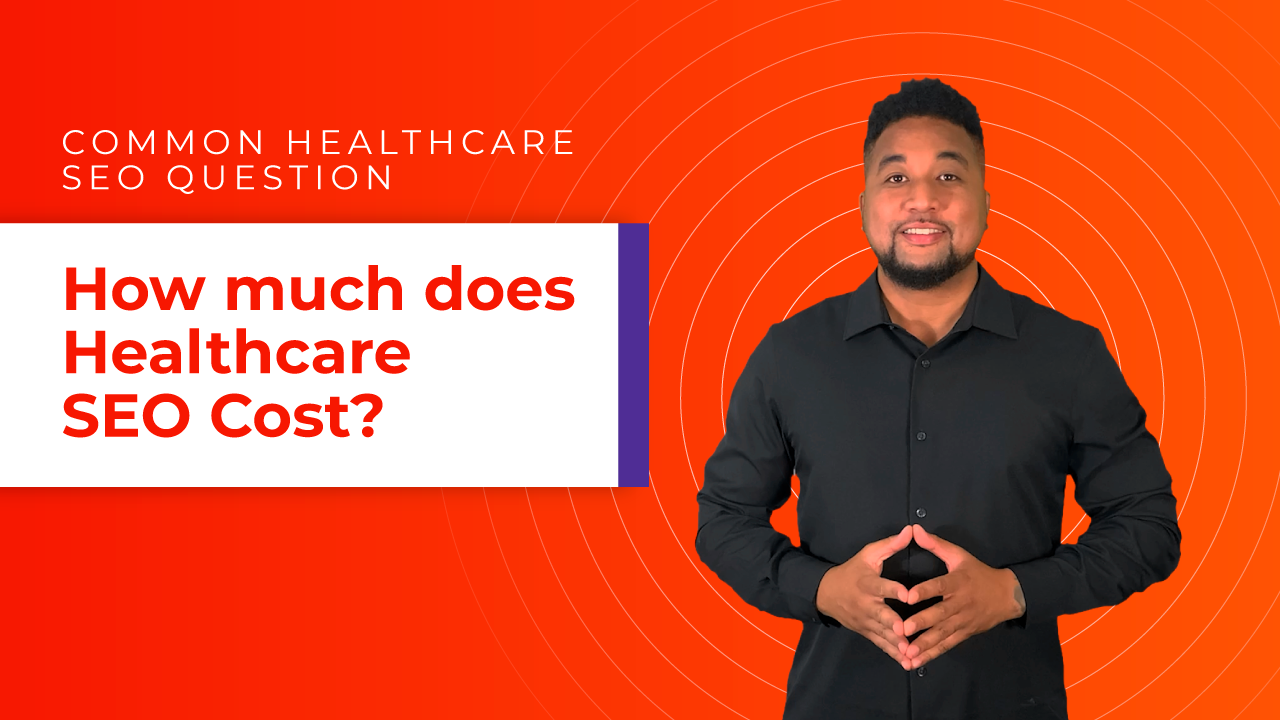
Audits
A good SEO strategy won’t be stumbling in the dark; instead, professional digital marketing agencies, such as Search Business Group, will analyze where you stand in relation to your competitors’ strengths and weaknesses to stay ahead of the curve.
Learn more about SEO Audit:
Keyword Analysis
Understanding what your potential audience is thinking is crucial for business growth. Find a partner who can deliver a tailored SEO strategy that covers queries and popular searches from the people who need your services.
SEO Content Marketing
Get help from a team that knows what you need to create and how often to do so to keep your audience engaged and maintain a steady flow of patients that keeps your practice healthy.
Learn more about healthcare content marketing:
Healthcare Web Design
When SEO is part of your medical website design, you can scale efforts to optimize your digital assets and reach more patients in your community. SEO in web design futureproofs your website, so it’s easy to make any required changes and grow your digital footmark.
Learn more about healthcare website design:
Healthcare Graphic Design
You’ll want a team who can translate your thoughts into beautiful images. Visual media is essential to keep users engaged and have them interact with your online content.
Learn more about healthcare graphic design:
Call Tracking
You can’t say your efforts are paying off unless you have a way to measure a campaign’s impact. Call tracking helps identify the channels users rely on to reach you and determine if you’re closer to reaching your objectives.
Learn more about healthcare call tracking:

Looking for Healthcare SEO Pricing?
If you’re interested in sustainable growth for your practice, check out our solutions for affordable and efficient Healthcare SEO pricing.
Target Audience
Identifying and understanding a target audience is essential for any business, especially when it comes to offering medical care. To effectively market your services, you need to know who you’re interacting with. Buyer personas can be an effective tool when getting to know your target audience better, as they provide a detailed breakdown of the customer’s values, needs, and preferences.
Developing buyer personas can be an easy and cost-effective way to get insight into your target patients. Several free or easy-to-use tools and templates are available to help healthcare businesses create buyer personas.
Here are some useful resources that will help you get started developing your own buyer personas:
You can also create your own questionnaires and surveys that could help your team collect data about the target audience, such as age, gender, location, and lifestyle. Additionally, the questions should focus on the customer’s attitudes toward healthcare services. Once you are in possession of this data, it’s time to analyze and organize it into useful categories, such as demographics and user behavior, to develop the best digital experiences.
Healthcare professionals can create marketing campaigns and strategies tailored to the customer’s needs by understanding the target audience through buyer personas. At Search Business Group, we know not everyone has the time or knowledge to do this kind of research. Let us help you. Our team has the expertise to define who your potential patients are. Contact us now.
Competition Analysis
A competition analysis is one of the most effective tools you can have for developing a unique product or service. As a healthcare professional, you want to stand out in a sea full of other professionals providing similar things. But who has the time to research what the competition is doing in a world full of online professionals and physical healthcare practices?
A professional digital marketing agency will begin the competitor analysis by researching the local market. This involves obtaining data on competitors operating in the same geographic area, their services and offerings, how they market themselves, and the cost of similar services.
The agency will use its research to develop a comprehensive report highlighting strengths and weaknesses in the healthcare provider’s marketing efforts and potential areas of opportunity. This will result in an actionable plan for the healthcare provider to develop the strategies needed to dominate the market.
Reviewed on

55 Reviews

13 Reviews

11 Reviews
SWOT Analysis
Healthcare professionals can use a SWOT analysis to assess the current and long-term viability of their practice. The combination of strengths, weaknesses, possibilities, and threats is referred to as SWOT. To put it another way, it’s a diagnostic tool that facilitates decision-making.
Strengths
All aspects of the project that make it stand above the rest. They are factors that are decided or controlled by the organization. Some strengths can be quality of service, pricing, or expertise.
Weaknesses
All areas of opportunity a business has to grow and improve. They’re normally internal initiatives that aren’t working favorably. Some examples can be lacking human resources, outdated practices, or not being present in the digital world.
Opportunities
External aspects that work in favor of the business that the organization cannot control. Some examples are social changes, cultural trends, or technological advancements.
Threats
External variables that may hinder or negatively impact a business’s development. Legal impediments, financial crises, or the spread of similar behaviors are a few examples.
The simplest approach to do this analysis is to compile all the data and show it as a square divided into four quadrants, each representing a SWOT factor. This layout gives a rapid visual summary of the company’s status. Do you intend to do a SWOT analysis of your company? Reach out to us so that we can begin developing your strategic marketing campaign.
Any company’s SWOT analysis will evolve over time, so it’s important to review it frequently to see where it needs to be strengthened.
Healthcare Content Audit
As you may have noticed, we’re trying to make sure that you get as much information and useful data as possible before you start making investments in marketing strategies. A market-oriented healthcare content audit will also help you determine which assets at your disposal are helping drive traffic to your website and what things need urgent attention and care.
Content audits are powerful resources. Digital marketing agencies will use these systems to identify growth opportunities and areas where you are lacking. For instance, a well-done content audit may reveal that you have duplicate content around a single topic that could otherwise help you reach a wider audience but is instead underperforming due to a phenomenon called “keyword cannibalization.”
In general, content audits will help you organize everything already at your disposal. Besides, it won’t hurt to know which content assets that require fixing.
Additionally, content audits will also help you identify the areas that resonate with your audience. All these systems, tools, and tips are meant to help you as a business owner or practice owner to grow, and the only way to do so is to reach a wider audience that is willing to interact with you. Good content achieves that purpose, and you can only get good content when you perform a content audit that reveals any weaknesses.
Once you, or your preferred digital marketing agency, have all your published content in a handy list, you can move on to analyzing what needs care, what is performing well, what is redundant, and if there’s an opportunity to expand.
Please keep in mind that a content audit is not a thing you should do only once. Content audits help lay the groundwork for a successful digital marketing campaign but are also part of the frequent maintenance your digital presence requires to remain healthy and efficient.
Additional content audits should focus on indexing all the content assets created during your special healthcare digital marketing campaigns, refreshing outdated content, optimize existing articles or landing pages, solving any broken links, and properly updating any blog post that helps drive traffic to your website.
Establish Measurable Goals
When you started your medical practice, you did it with a personal purpose in mind. Marketing works the same way.
When you develop a strategy, it’s necessary to define why you’re doing it. Is it to increase your booking rate, raise brand awareness, or grow the practice in the future?
Determining your objectives is essential to ensure a clear direction and focus, which can lead to more efficient use of resources and better results.
Moreover, measuring the success of these objectives provides invaluable insights into what is working and what needs improvement. Small wins can often go unnoticed, but they’re great to track if you are reaching your set milestones effectively. Some examples of how you can track goals in the healthcare industry are:
- Are you getting more new-patient calls?
- Is your audience spending more time on your website?
- Are your current patients making more appointments?
- Are you getting more referrals?
By understanding what is working and where there are growth opportunities, businesses can make informed decisions and maximize their marketing returns. In turn, this enables them to maximize their profit potential. Ultimately, defining and measuring marketing objectives is integral to business success.
Long History of Driven Client Success

1,016,000,000
Google Impressions

18,000+
Fill Form Requests

1,360,040,550+
SEO Revenue

14,360,000+
Calls Generated
Strategies and Tactics
Healthcare providers are in a unique position to take advantage of the power of marketing. Creating an effective marketing strategy tailored to their goals is essential for any healthcare professional. A good marketing strategy should focus on:
- Increasing patient satisfaction;
- Improving brand awareness and visibility;
- Building strong relationships with existing patients;
- Creating an online presence that is engaging and accessible.
By taking these steps, healthcare providers can ensure they are reaching their target audience in a meaningful way and ultimately increase the success of their practice.
A successful healthcare marketing strategy focuses on delivering value to patients by providing exceptional customer service and quality care. With a little bit of planning, healthcare providers can create an effective and strategic plan that will help them reach their goals and provide a positive experience for their patients.
Online and Digital Footmark/Presence
It may sound redundant, but in today’s digital world, having an online presence is essential for any business. For health professionals, it’s key to establish a strong online presence to reach more potentially qualified patients and build relationships with them.
According to a Salesforce survey from 2017, 85% of consumers do research online before purchasing or hiring a service. We believe that’s convincing enough to start your path online.
There are different ways to have a digital presence. Social Media, websites, search sites, digital advertising, and client reviews are some channels where your practice must be present. New technologies are always showing up in a fast-evolving world, so staying updated on new digital communication channels will increase your chances of succeeding.
Website Made For Medical Professionals
Allows you to showcase your services, communicate the value of those services to potential customers, and build trust. Your website can also act as an online platform where customers can access information about your services and schedule appointments. Advanced SEO and analytics tools allow you to determine how to create the most impact and attract more consumers to your content.
In addition, having a social media presence on sites such as Facebook, TikTok, and Instagram is a great way to build relationships with new and existing clients. It’s also an effective way to market your services, share health-related content, and spread awareness about your brand.
Finally, creating valuable content is a great way to showcase your expertise and help establish yourself as an authority in the industry. Creating content that resonates with readers will help you build relationships with potential customers and promote trust in your services.
Overall, having a digital presence is essential for any health professional in today’s digital world. It not only allows you to reach a larger audience but also helps to build relationships with potential customers and spread awareness about your services.
Healthcare SEO
These days, potential patients don’t just show up to your practice by chance. They will likely search for you before deciding to make an appointment.
Just in 2019, approximately 63,000 Google searches were done per second, many of which were made to find information about local businesses. That’s why every healthcare professional must improve their online presence and website in order to succeed.
Search engine optimization (SEO) for Medical Providers has become an essential element of success for modern medical practices. In fact, SEO is so important that it can be the difference between a business’s success or failure. These are the ways SEO helps healthcare providers improve their business:
- It can increase visibility and website traffic, helping to generate more bookings and convert them into qualified patients.
- SEO can help you through targeted keywords and other strategies to improve your site’s search engine rankings and increase your desired online presence.
- Through SEO, practices can build a strong brand identity that resonates with patients.
Learn more about healthcare SEO:
The Healthcare SEO benefits
The potential for increased bookings, sales, and visibility are just some of the reasons SEO should be an integral part of any business’s marketing strategy. With the right approach, companies can gain a competitive edge in today’s digital market. If you want to implement a healthcare SEO strategy in your practice, you’re in the right place. Get in touch with us, and let’s start working together.
We know this might sound complicated, so here are 10 simple ways to help your website succeed by ranking higher:
- Do your research and choose all of your keywords wisely.
- Create valuable content that is interesting, relevant, and shareable for potential patients.
- Align your content with search intent. Every search has a purpose. If you understand what your audience is looking for, your content marketing strategies should match that.
- Write unique and compelling title tags and meta descriptions.
- Optimize your images. Choose the right format and size, and remember to add alternative text.
- Optimize your website’s page loading speed.
- Make your site mobile-friendly.
- Build backlinks to demonstrate authority. Backlinks are votes of confidence from other sites to yours.
- Improve your site’s UX (user experience)
- Boost your practice with local SEO. Nearly 30% of all mobile searches have local intent. Trust your neighbors.
Consider all of these points to create a powerful healthcare website everyone will recognize. A specialized marketing agency can help you develop each point until your healthcare business achieves your marketing goals.
We’ve generated over
- $1,360,040,550+
IN CLIENT REVENUE
We’ve created more than
- 2,855+
HEALTHCARE WEBSITES
We’ve generated more than
- 14,360,000+
FIRST TIME CALLERS
We’ve written more than
- 250,800,000+
WORDS FOR PATIENTS
Healthcare Content Strategy
As you may have noticed from previous sections on this page, we firmly believe that you should measure twice before you cut. This is one of the most challenging parts of digital marketing as a growth strategy; most people want to see immediate results and believe that quick actions are better than the implementation of well-thought-out plans. Others will use unethical shortcuts to try to reach those top positions in online searches.
But neither of these approaches work. Instead, our experience as a Healthcare Marketing Agency has shown that developing a healthcare content strategy helps practice owners grow at a steady pace that continues to survive the test of time.
We mean it.
Search engines update their algorithms constantly to fix unethical exploits and fine-tune the user experience, which is why we put so much emphasis on a good content strategy that sits back and thinks hard about how to engage with potential patients instead of publishing whatever first comes to our mind and as quickly as possible in hopes that we will flood search results.
That’s just not how it works.
A good content strategy will also help take away some of the anxiety and stress caused by the need to post content frequently. If you plan ahead your first six months worth of content, you will be able to work at a steady pace that keeps your audience engaged. Further down the line, you can stop and ask yourself if you need to increase the frequency at which you post content or if you can instead focus on optimizing any existing assets.
Remember what we said about an SEO content audit? Well, we’re going to insist on their importance. A good strategy helps plan for the future and seeks feedback to know what it can do better and where it has to improve.
Healthcare Content Writing
Healthcare content writing is a challenging aspect of any digital marketing campaign. We’re hoping you’ve put in the work and at least completed a content audit and a content strategy before you start writing content for your website, but even if you’ve decided to go straight into writing content you think will be of interest to your audience, you will find yourself agreeing with us in that writing content is not a walk in the park.
Let us be clear. Writing content is not hard for everyone, but writing good content is an art.
As a healthcare digital marketing agency, Search Business Group knows that writing content requires talent, dedication, and skill. We praise practice owners and healthcare professionals who wish to write their own content, but we have to warn against it.
There are two main challenges that any business owner faces when they wish to take care of writing their own content and not hire a professional marketing agency:
- Professionals and specialists like to write content they are knowledgeable of. Their articles can be too technical or too niche for the wider audience they’re targeting. Even though there is a definite use for this type of content, it is not where we would recommend you focus on the beginning months of your new digital marketing campaign.
- To make the most out of content writing for SEO purposes, you have to strike a balance between the frequency at which you upload content and how long each piece is. Besides, there are several SEO good practices you have to keep an eye out for. All of these additional considerations can be overwhelming for first-time writers, making the task more challenging than you might have initially thought. Writing your own content can be challenging and difficult to manage with your busy schedule as a service provider.
Writing content for your healthcare website is essential for your growth, and it’s something that requires a lot of dedication. We suggest you look at conveniently-priced services that take the load off your back.
How to Write Your Content
If you do decide to write your own content, do yourself a favor and sit back to think of the following:
What do your patients ask on first-time appointments?
Creating content about recurring topics and frequently asked questions ensures you connect with potential patients.
How much time can you dedicate to creating content?
Don’t overthink it at first, and try to break down topics so you can focus on writing content pieces in a time that doesn’t affect your availability or feels like a burden in addition to the services you provide. Also, pay attention to the overall word count of your content.
Index everything you publish. One of the many pitfalls of content writing is duplicating content. Unfortunately, many inexperienced content writers will circle back to familiar topics and not be sure whether or not they’ve already covered them. Duplicated content is a big no-no in Healthcare SEO.
Try familiarizing yourself with a bit of keyword research to know what topics are better for user engagement and how to direct your content-writing efforts best.
Don’t think that written content is the only thing that works online. Go ahead and explore all the other types of content you can publish, create, and otherwise add to your website to increase user engagement.
Learn more about healthcare content marketing:
Mobile-First Website
In 2012, smartphones overtook the market and surpassed PC sales for the first time. As of November 2022, 60.28% of all web traffic came from mobile devices. A mobile-first era has since taken hold in marketing practices.
Healthcare practice owners must adapt to stay competitive in this landscape, and optimizing their websites for mobile speed is essential. In a hyperconnected world, time is money. A slow website can be the difference between booking an appointment and not.
The Extra Mile
Google Business Profile can also help by providing quick answers that will show up easily on the search results page. Additionally, no-click searches have become increasingly prevalent as potential patients prefer to find answers directly in the search results rather than visit several sites to find their answers.
Healthcare businesses need to take these emerging trends into consideration and develop strategies that meet the needs of this mobile-first world. Doing so can ensure that their brand remains visible and reaches the right audience to achieve their marketing goals.
When you start developing your mobile-first website, consider the following tips:
- Your design must be convenient for users, so keep this in mind as you design your user flows. Enhance the user experience.
- Plan a visual hierarchy of content.
- Consider the size of the target touchscreens.
- Keep it simple.
- Keep your CTAs consistent and simplistic.
- Optimize your site’s loading speed.
Mobile comparability is a great way to stay ahead of the competition and build a strong presence for your practice in today’s digital environment.
Healthcare Web Design Experts
Online Advertising
Paid online advertising and pay-per-click (PPC) campaigns can offer health professionals a great way to promote their products and services. Paid online advertising involves creating ads that appear on search engine results pages (SERPs) or other web pages when a user searches for a specific keyword. Professionals can target paid search engine advertising to reach specific audiences, giving health professionals the ability to promote their services more effectively.
Pay-per-click campaigns (PPC)
PPC involves creating ads that are served to a target audience when they perform certain actions. For example, if a user searches for “healthcare services” on Google, they may end up seeing an ad for a local health professional’s services. PPC campaigns are more cost-effective than other forms of advertising because you only have to pay when the user clicks on the ad.
Health professionals can benefit greatly from paid online advertising and pay-per-click campaigns. These methods allow them to reach and target their ideal audiences, which can help increase the visibility of their services and attract more clients. Additionally, paid search engine advertising and PPC campaigns allow health professionals to measure the performance of their ads, adjust their strategy, and reach the most effective audience. By utilizing these powerful strategies, health professionals can effectively promote their services online.
We know not everyone can afford paid advertising. That’s why we always suggest making bigger efforts for SEO strategies. ROIs are potentially higher with SEO work when compared to PPC campaigns, as SEO efforts tend to be more cost-effective in the long run. SEO can also help boost brand awareness, build trust with potential patients, and help generate higher-quality leads than those generated through PPC campaigns.
Learn more about healthcare online advertising:
Social Media
Social media isn’t a new technology anymore. If you’re not on it, you’re probably losing patients right now.
Social media has become an essential part of our modern world and website performance. It offers businesses a platform to connect with their target audiences and build strong relationships with them. It also helps drive more traffic to your website, with the potential for greater visibility and higher search engine rankings.
Managing several social media accounts can be challenging, so here are some tips for doing it effectively:
- Get organized to manage your accounts.
- Plan when and what to post on your social media ahead of time.
- Take advantage of automation to schedule posts, manage followers, and track responses.
- Respond promptly to comments, questions, and messages.
By following these tips, you can effectively manage multiple social media accounts and maximize the performance of your website to achieve your marketing goals.
These are some of the most common social media platforms for healthcare professionals:
It promotes engagement, increases conversions, and uses its ad platform to target the appropriate audience at the appropriate moment. It features a “Book now” tool because it is an appointment-only practice.
If you want to carry on trends and engage in real-time conversations with patients, Twitter is perfect. It’s also a great social customer service tool due to its quick-fire nature.
It is a heavily visual platform that offers many content options for brands. From short stories and filters to live streamings and long videos. It’s the perfect platform to showcase your content.
This is the perfect platform to build a community with other healthcare professionals and a network base for reaching potential patients.
YouTube
As a video-based platform, YouTube can be a great tool for your practice. You can promote your services with various topics ranging from reviews to demonstrations and educational videos.
TikTok
It’s the perfect platform to grow organically and engage with your younger audience.
Learn more about Social Media:
Google Business Profile Updates
Managing your GBP profile and constantly updating it will ensure Google can share the most accurate information with your potential patients.
Learn more about Google Business Profile:
Reputation Management
It’s impossible to be everybody’s cup of tea, but when you get a bad review, you should address it. And when you get a great review, you should address it too!
Managing your online reputation is another step towards achieving your goals.
Hundreds of people online search for the best doctor, vet, gym, or other health services. There needs to be more than a well-designed website and social media account to tell them that you’re the perfect choice for what they need.
The First Step
Providing good service and products is the first step you can take to encourage positive reviews from your patients on your business profile, social media, or other review platforms. Reviews can show potential patients what your practice looks like and increase their likelihood of making an appointment.
Negative Reviews
If you get a negative review, you must acknowledge the problem and answer with an apology for the inconvenience. Ultimately, real patients’ experiences are a selling point, and erasing reviews is not an option.
Learn more about Reputation Management:
FAQ Sections
A Frequent Asked Questions (FAQ) section is ideal for you and any potential patient. Having an answer to common patient concerns prepared ahead of time speaks well of you and saves time for both parties. Some healthcare professionals can gather FAQs from their own experiences with clients. Many questions are likely to be repeated by a lot of patients. Answering their concerns beforehand will be excellent for your image.
Physician Referrals (Network)
When running a successful practice, physician referral marketing is essential. Having strong relationships with primary healthcare providers and being able to provide direct referrals are invaluable resources for the growth of a healthcare business. Coordinating with other health specialists that the patient trusts and has worked with not only adds credibility to your practice but can also help to create a positive referral system.
In addition, coordinating with other healthcare professionals is beneficial insofar as it improves communication and ensures patient safety and satisfaction. With good relationships between health specialists, any practice can rely on referrals and a steady influx of new patients.
Therefore, building relationships with other healthcare professionals is an important part of a healthcare marketing strategy. These relationships can mutually benefit all parties involved, leading to a successful practice with a strong foundation for growth.
Practice Reps
A network of physician liaisons is an important resource for healthcare professionals. This network improves communication between healthcare organizations and aims for patient retention and referrals. Physician liaisons are responsible for connecting physicians with other healthcare-related organizations and ensuring that all parties remain informed of the latest news and developments.
Building a strong referral system is the biggest benefit of a physician liaison. Referral networks can help doctors get new patients, maintain network relations, and provide physicians with a competitive advantage over other professionals.
Texts and Emails
Creating multiple communication channels between a healthcare practice and other primary care physicians is essential to ensure that accurate, up-to-date information travels among all the network members. This allows for improved coordination of care and better sharing of patient data, which in turn leads to improved patient outcomes, referrals, and retention.
Multiple communication channels, like emails and texts, between your practice and other health professionals can also help reduce the risk of medical errors and provide a better understanding of the patient’s overall well-being. Ultimately, these communication channels can improve the quality and effectiveness of care for patients.
When creating a healthcare marketing strategy, it’s important to define the channels that are in use in the network. This will help keep everything in order and achieve the practice’s goals.
Lunch-And-Learn
It may sound tedious to some, but social meetings are essential to building a network and achieving your marketing goals.
Lunch-and-Learn events are a well-known method to maintain your network and keep it growing.
A Lunch-and-Learn is an educational session held during a lunch hour. It typically involves a presentation from an expert or leader in the health field, which serves everyone in attendance as a brief overview of the topic. The goal is to maximize attendance by making it easy and convenient for all the network members to attend. Lunch-and-Learn sessions are particularly effective when introducing health professionals to other colleagues. A bigger network allows practitioners to increase collaborations with other professionals. In addition, these events can also work to present new technologies, processes, or techniques.
CME Event
Continuing medical education (CME) events are invaluable for the growth of healthcare networks. They enable healthcare professionals to gain exposure and build connections with industry leaders, helping to optimize their professional development while also achieving growth marketing goals.
Through CME events, professionals can forge relationships with other healthcare providers and stay up-to-date on the latest advancements in their field. This allows them to provide better care and services to their patients while also helping them to grow their networks and develop their practices.
Extra benefits
CME events also offer the opportunity to promote the brand at a larger scale, increasing visibility while providing a platform to show off the best practices in the field. Working with well-known commercial brands is a great strategy. It helps rank higher thanks to the brand’s boost and to build a good reputation.
By attending CME events, healthcare networks can gain invaluable insight into new trends and techniques while connecting with other professionals and growing their connections. This facilitates the growth of a healthcare network while helping achieve growth marketing goals.
Attendees at CME events also benefit from learning from their peers, developing new strategies, and enhancing their skills. This can result in increased patient satisfaction, better outcomes, and the potential to create more efficient workflows.
Internal Marketing
Engaging with current patients and developing conversions are vital for any practice. It’s important to keep your existing patient base happy and build trust with new patients. Internal marketing can help your practice retain its current patients and increase referrals. Here are a few tips to help you do that:
- Make sure your patients know about your services and treatments. Keep them informed and up to date with any new developments in your practice.
- Make sure you have a positive online presence with good reviews and accurate information.
- Respond quickly to any questions or queries your patients may have, either online or in person.
- Utilize patient engagement tools such as reminders and follow-ups to keep your patients engaged with their care.
- Make sure you are easily accessible to current and potential patients. Ensure you provide them with multiple contact options, including online and over the phone.
By following these tips, you’ll be well on your way to engaging with current patients and developing more conversions. Put the patient first, practice excellent customer service, and use marketing best practices, and you’ll be well on your way to success. Search Business Group can help you develop an efficient communication strategy with your patients. Contact us, and let us work with you.
Patient Text and Email
A direct communication channel between your practice and your patients is essential to ensure engagement and retention.
One-way texts and emails are a great way to stay in touch with your patients. Sending alerts, reminders, and offers can help keep your patients informed and engaged. Plus, it is the least invasive way to let your patients know you’re present. These methods provide timely communication with patients, allowing healthcare providers to stay in touch and deliver important information quickly.
Email marketing also allows for the personalization of messages, allowing healthcare providers to send tailored reminders or updates to specific patients. SMS follow-ups provide an easy way to alert patients of upcoming or missed appointments and are often the preferred communication choice for busy patients.
Combining email marketing and SMS follow-ups allows healthcare providers to ensure that their communications are timely, personal, and effective.
Phone Communications
Phone communications are NOT a thing of the past. A well-timed phone call means a higher chance of new patients and appointments.
Some great suggestions regarding phone communications for healthcare businesses are:
- Dedicate time to answer calls.
- Listen actively to every potential patient.
- Provide accurate information and answers on the first call.
By following these tips, you’ll be able to convert a prospect into a patient with just one single call.
It’s essential to make sure potential patients receive the care and attention they deserve. Once accepted, these calls represent an opportunity to turn a prospect into a customer by booking them an appointment or answering their questions. Taking the time to take calls, listen, and provide customer service can result in higher conversion rates and improved customer relationships.
Tracking Systems
Using data to track performance and make the most of your team’s time can help increase conversions. Call tracking tools can help you collect important data about your patient engagement. With these tools, you can track the source of a call, its duration, and the outcome. This data can be used to optimize your outreach efforts or analyze trends in customer service.
Additionally, surveys are a great way to gain valuable insight into patient engagement, as they can provide you with direct feedback from customers. Leveraging these tools to track patient engagement can help you identify areas of improvement, allowing you to meet your patients’ needs better.
Some of the best tracking tools are:
Testimonials and Reviews
There’s no better judge than a satisfied (or not so satisfied) patient. A very helpful tool to achieve your growth goals is requesting your patients to leave a review or comment on your website or business profile.
Happy, satisfied patients are likely to leave positive testimonials and reviews. These comments can make interested, and potential patients choose your practice over another.
If negative online reviews show up, address it and provide an apology or solution. This will keep your public image positive for any potential patient.
Next time you finish an appointment, kindly ask your patient to leave a review. Google Reviews and Yelp Reviews are some very popular reviewing sites, so it’s important to have a profile and direct link to them.
Events
Special events will make your practice look better in the eyes of the public. By creating events that show your appreciation for the community, you can build an even bigger reputation. Holidays are a great time to start developing these events.
You can also use special events to introduce patients to your practice and staff and network with other providers and businesses in the area.
By getting creative, you can make your special events stand out and showcase who you are as a practice.
If you event-planning is too time-consuming for you, hiring an event planner can be a great option. Also, a social media outlet can help you promote an event and engage with more local audiences, ensuring success for your event.
Signage
Signage is a great way to engage and direct new patients and build brand awareness. By partnering with leading marketing providers, you can ensure your signage is attractive and up to date with the latest trends. This allows you to create an inviting atmosphere and make a favorable first impression on potential patients. Furthermore, such partnerships can help you access a wider range of custom-made materials for your needs.
By utilizing custom signage, you can further establish your healthcare facility as an effective and reliable provider of quality care. Ultimately, investing in custom signage is an excellent way to increase visibility and attract new patients. There are several brands you can partner with to start developing incredible signage for your practice. Find more information about signage for medical facilities here:
Trade Shows and Promo Items
Networking and medical conventions are great opportunities for doctors to create a lasting impression and attract attention to their practice. Doctors can invest in various resources to ensure their presence is noticed by potential patients in their community. For example, they can invest in signage that clearly communicates a message.
They can also use business cards, brochures, and other materials to explain their services. Additionally, souvenirs are an effective way of reminding people of a doctor’s presence after the convention. These souvenirs can serve as conversation starters, allowing people to remember the doctor’s services and practice more easily. Through a combination of these resources, doctors can create an impactful impression that will stay with potential clients long after the convention.
Doctors should be aware of the importance of networking and medical conventions, as they can provide a great setting to build relationships with other field professionals and gain exposure to their practice. Investing in resources such as signage, business cards, brochures, and souvenirs can be a great way to ensure their presence went by well-noticed and kept in mind for a long time. In the long run, these investments can help attract attention to a doctor’s practice and build relationships with potential clients.
Public Relations
Healthcare professionals have always found public relations to be a great way to engage more patients and see their practices grow.
Physicians can spread knowledge about their services through patient education and community outreach and build relationships with the public to ensure satisfaction and loyalty. Such activities include:
- Media appearances and interviews.
- Local health fairs and community events.
- Community organizations that focus on improving public health.
- Sponsorships.
By effectively engaging with the public, healthcare providers can ensure that they give their patients the best care possible while raising awareness of important health issues. This proactive public relations and community outreach approach can help build strong relationships with patients and communities.
With the right strategy, public relations and community outreach can help health professionals positively impact their patients’ lives.
Interviews
Local news interviews can be a great way for health professionals to showcase their expertise and build name recognition. By connecting with the media in your local area, you can create quality content that puts your knowledge on display while generating positive interest in yourself or your practice.
Through careful planning and research, you can use these interviews to address topics relevant to your field of expertise and make a lasting impression on your audience. By taking advantage of the opportunity to appear in local news interviews, health professionals can set themselves apart from their peers while establishing trust with potential patients.
Search Business Group is committed to helping medical professionals create engaging and informative website content. We offer website content in an interview-style format, allowing online readers to gain insight into the doctor’s thoughts and opinions on various topics. This type of content helps viewers feel more connected with each doctor and helps them become more familiar with their practice. Our content writing services ensure that each doctor’s website is comprehensive, professional, and engaging.
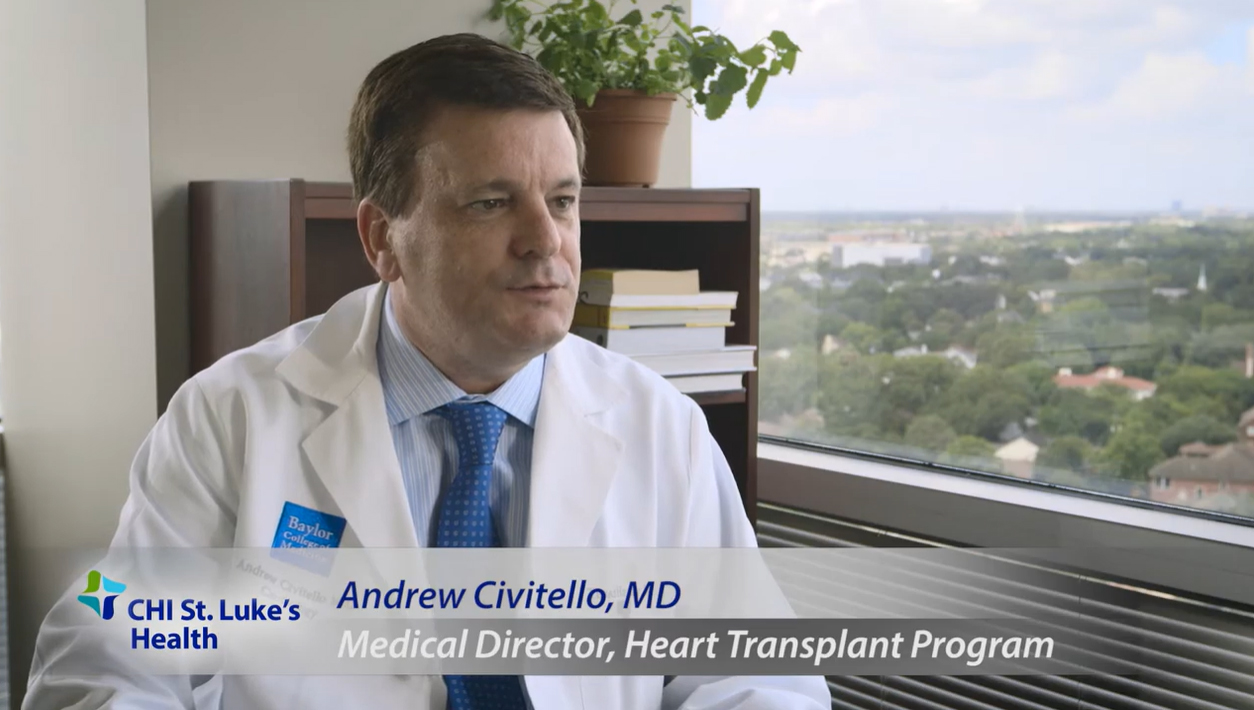

Sponsorships
Practice managers have the great task of making agreements with brands for sponsorships.
In the healthcare industry, sponsorships are usually about getting services or goods from brands in exchange for exposure.
This could be a great opportunity to bring in new resources that can benefit the practice and its patients without costing too much.
When looking for potential sponsors, it is important to remember what type of company would be best suited to your practice. To ensure you get a good sponsorship deal, practice managers should understand the contract terms, negotiation tactics, public relations, and proper management processes. It’s also important to consider any restrictions that may come with the sponsorship and the outcome of the agreement.

Community Events
What better way to build a great reputation in your local community than by participating in community events?
Being involved in activities where potential patients can notice you and your practice is a perfect addition to your healthcare marketing strategy.
Building a great reputation in the eyes of the public requires making efforts to give back to the community. Local fairs, conventions, or charity events are good occasions to become a participant.
At these events, you can provide health screenings or other services, such as seminars on important topics in the healthcare field. Handing out promotional materials with your practice information is also a great way to get the word out about your practice. You may even consider providing free samples of products related to your practice to give people an idea of what you’re about.
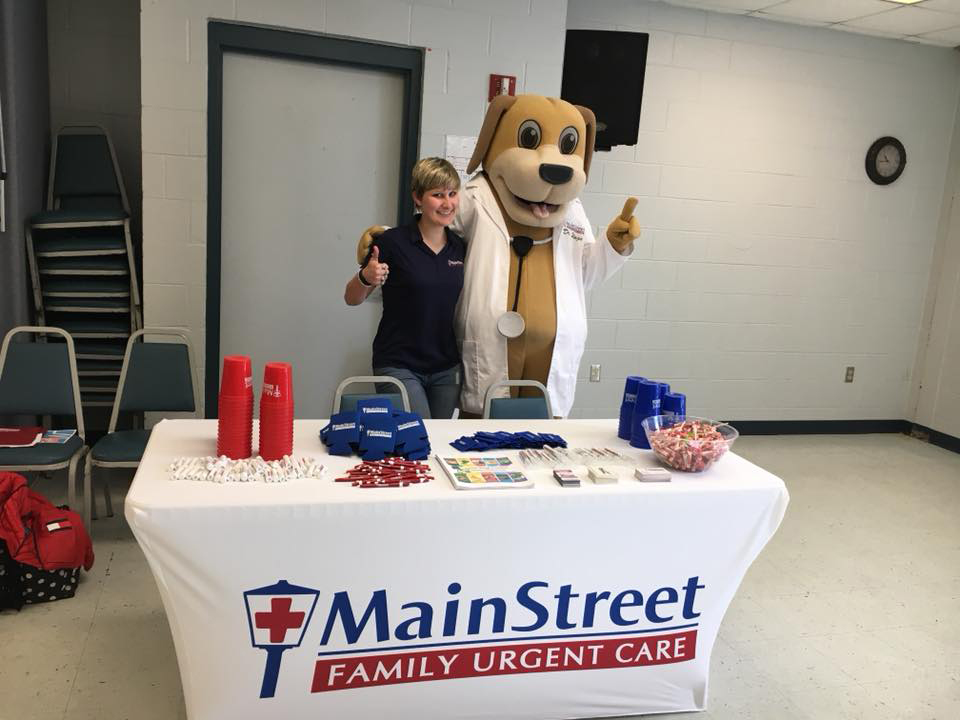

Traditional Publicity
Public relations and advertising on traditional, local media are essential for healthcare businesses looking to engage their local community. A strong public presence can help improve brand recognition and loyalty and boost booking rates.
With good public relations, healthcare businesses can create a sense of trust with their patients and customers, which is essential in establishing relationships that lead to repeat appointments.
Advertising on traditional media can help build a base of loyal customers by reaching out to local audiences and engaging them with the business’s message. It can also help promote new services and products and increase referrals from satisfied patients.
With an effective PR and advertising strategy, healthcare businesses can ensure their message is heard and seen as a trusted source for reliable healthcare services.
Traditional Media
- Television advertisements
- Radio advertising
- Print advertising
- Direct mail advertisements
- Billboards and off-site signs
- Cold calling
- Door-to-door sales
- Banner ads
New Media
- Search engine optimization
- Pay-per-click advertising
- Content marketing
- Social media
- Email marketing
Combining Traditional Media with New Media
Small Business Growth (SBG) can help maximize the potential of your traditional publicity campaigns. Combining digital marketing with traditional methods offers a variety of advantages. A digital marketing strategy can draw people in and reach farther than traditional methods, while traditional publicity brings valuable credibility to the mark.
By combining traditional publicity with digital marketing, you can maximize the reach and effectiveness of both campaigns. Search Business Group’s experienced team of digital marketing specialists can help bring your brand to more people’s attention in more places than ever before.
Take the next step and make the most of your marketing efforts – contact us to discuss how our digital marketing services can help you reach your goals. Let us show you how to amplify your traditional publicity campaigns and make the most of your digital marketing budget. Contact us today!
Community Marketing
Community marketing is a marketing strategy that utilizes local networks and communities to promote products, services, or brands. It is distinct from traditional local marketing because it seeks opportunities to build relationships with local customers by creating and leveraging word-of-mouth. By utilizing the existing network of people in a specific community, advertisers can spread their message more organically, allowing for stronger relationship building.
Community marketing works to raise brand awareness and loyalty by creating an atmosphere of trust and reliability. It differs from traditional local marketing because it emphasizes building relationships and loyalty among community members rather than simply promoting products or services.
It involves connecting with people in the community through activities such as engaging content on social media, hosting events with local influencers, or simply handing out promotional items with branded messages.
Community marketing has become increasingly popular in recent years due to the rise of social media and its ability to facilitate conversations between businesses and customers. By leveraging these powerful digital platforms, advertisers can connect with their target audience more meaningfully and personally, allowing them to build trust with their customers.
Overall, community marketing is an effective way for businesses to connect with their local communities and create deeper connections with their target audience. It offers an avenue for brands to boost awareness and loyalty among their customer base while also building relationships that will last long-term.
How Community Marketing Helps Grow Your Practice
Community marketing can be a great tool for driving traffic and raising awareness for healthcare businesses. Here are some of the ways it can help:
Reach new patients
Community marketing gives you access to large, engaged audiences, which you can use to spread the word about your practice. It also helps to build relationships with potential patients and create trust in your brand.
Increase brand visibility
An online presence is essential for any business, but community marketing allows you to reach people beyond your website or social media channels. You’ll have more opportunities to get your message out by engaging with relevant groups and forums to gain exposure and reach new audiences who may not have heard of you before.
Engage with current patients
Community marketing is a great way to start conversations with your existing patients and get their feedback. You can also use it to stay up-to-date on the latest trends, so you know what products or services you should be offering and how your practice can better serve them.
Generate word-of-mouth referrals
People are more likely to share information about healthcare businesses they trust. Community marketing helps build relationships between companies and their followers that lead to positive recommendations for your practice. This can drive more traffic and increase sales for healthcare organizations without additional advertising costs.
Secure social proof
Positive reviews from people in your community are a great way to build trust with potential patients and demonstrate the quality of your services. It also helps to create an authentic atmosphere around your brand that will make it easier for patients to feel comfortable making appointments with you.
Improve SEO rankings
By participating in conversations on different platforms, healthcare businesses can get backlinks to their website, which is an important factor for improving search engine rankings. This can lead to more organic traffic coming directly from search engine results pages (SERPs) without the need for paid advertising.
Community marketing can be a powerful tool for healthcare businesses looking to increase their traffic and raise awareness of their services. By engaging with customers online and offline, they can create relationships that lead to increased bookings, generate more word-of-mouth referrals, and better understand what patients need from them.
How to Get Started With Community Marketing?
The healthcare industry is undergoing radical changes, and keeping up with the latest trends in community marketing can be challenging for practice owners. A few key tactics can help healthcare businesses develop an effective community marketing strategy:
Utilize social media to build relationships
Social media is an excellent way for healthcare businesses to build relationships with potential patients and keep up with the latest news in their industry. Posting relevant content about your services, engaging with the audience, and responding to comments can help create an online presence that increases brand awareness.
Participate in local events
Engaging with local organizations, attending community events, and sponsoring activities can help increase your visibility in the area. Participating in these events allows you to meet potential patients, build relationships with other local businesses, and demonstrate your commitment to the community.
Reach out to local media outlets
Reaching out to local media outlets is a great way for healthcare businesses to boost their presence in the community. Submitting press releases, appearing on radio and TV shows, and writing guest blog posts can help spread the word about your services.
Create content that educates potential customers
Creating content that informs and educates prospective patients is an important part of a community marketing strategy. Whether it’s blog posts, podcasts, or videos, providing helpful content will help build trust and establish your authority as a healthcare provider.
Use local influencers
Local influencers can be invaluable assets for healthcare businesses. Partnering with local influencers to create content and share your message can help you reach a wider audience and increase your presence in the community.
Search Business Group, as a reliable healthcare marketing agency, offers expert advice and guidance if you are a healthcare practice owner looking for help with developing an effective community marketing strategy. Contact us today to find out how we can help you get the most out of your community marketing efforts.
Leveraging Community Marketing, Traditional Marketing, and Digital Marketing
Marketing is essential for any healthcare business to reach out to patients and remain competitive. There are three main forms of marketing: community, digital, and traditional. Community marketing is a cost-effective form of advertising focusing on building relationships with the local community through events and face-to-face interactions. Digital marketing is one of the most popular and effective forms, enabling businesses to reach a vast audience at a lower cost. Traditional marketing involves print ads, radio and television spots, and direct mail campaigns.
We specialize in healthcare digital marketing services at Search Business Group, especially SEO (search engine optimization) services. Our services will help businesses gain visibility in search engine rankings, increase web traffic, and drive conversions. Our team of experts is highly skilled in optimizing websites and content, building backlinks, researching keywords, and tracking website analytics.
When it comes to marketing, it is important to find the right mix of traditional and digital strategies. With our comprehensive range of services, Search Business Group can help you reach your objectives. Contact us today to learn more about how we can help you grow and succeed!


